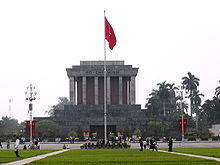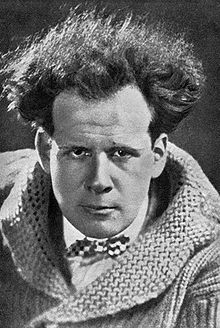The Japanese took Viet Nam away from France during World War II. At the end of the war, France– it’s manhood seriously in doubt, I suppose– tried to take it back. To do this– believe it or not– they accepted the assistance of some Japanese forces that had yet to be repatriated. You can’t make this stuff up.
Let’s go back a little further: history is incredibly rich in instructive detail about empires and irony.
The French chose sides in a long-standing civil war in Viet Nam, which had it’s roots in the 1850’s. Eventually, the French and their proxies simply elbowed aside the natives and took over. Why? History books simply tell you that the French “took control” as if there was something logical and reasonable about a European Nation walking into a foreign country on the other side of globe and taking control. It’s ours now. Your wealth will now flow into our pockets. You are now working for us.
With the defeat by Nazi Germany, France lost control of their colonies, to the Japanese. During the Japanese occupation, Ho Chi Minh agitated for a end to any foreign domination, and formed a guerrilla movement. When the Japanese were defeated, Ho proclaimed an independent Viet Nam. That seemed an insanely rational thing to do.
The French, deeply moved by the sad experience of being occupied by an evil foreign power, congratulated them and moved on.
Hoo hah! Did you believe that even for a second? No, France said, not so fast. They offered a puppet state to Ho; he declined.
It was the French and the Americans who defied rationality. The French decided to try to take Viet Nam back, as if they had some sacred title deed to the nation. After the negotiations failed, the French moved their armies in. A little cheesy, you might think. Having been soundly defeated by the Germans and restored to power by the Americans and British, they go marching into Viet Nam all bluster and courage and medals and parades. In fact, General Gracie, the British commander, allowed the Japanese to be re-armed in order to help the French retake Viet Nam from the Viet Minh!
It reminds me of those parties in New York where people you thought were political or literary enemies all gather together and toast themselves. Kissinger and Truman Capote and Barbara Walters and Jackie Kennedy and Prince Andrew– all together, schmoozing.
Here is the fork of history– how many lives would have been saved if the French had simply admitted that they didn’t belong there in the first place, and if they had simply congratulated Viet Nam on their independence and moved on? Where would we be today? How many French, Americans, and Vietnamese, and Cambodians, and Laotians, would be alive and well and perhaps even prosperous today, if some asshole Frenchmen had not decided that it would do France’s honor some good if it could bully some Asians into submission and take their rubber?
Yes, what they wanted, I believe, was the rubber.
Let’s not be overly simplistic– the communist government in the North were no saints; they destroyed the economy and caused famine into the 1950’s. Russia and China interfered, using them for their own purposes. But the decisive matter is this: Viet Nam resisted both the French and the Americans because they wanted independence, and once the French and then the Americans were gone, they turned on the Chinese and the Russians and did just what they said they would do originally: take control of their own nation. Had the French departed in 1950 as they should have, they would have learned their lessons about management of the economy much sooner. The moderates would also not have been driven from all levels of government the way they were when civil war broke out.
The Americans, we are told in one documentary, confronted Chinese troops in Korea, which led them to believe that communist China must be “contained”. The glib voice doesn’t tell us how the Chinese came to be involved in Korea, of the arrogance of McArthur, and the diplomatic bungling, or the hubris of the allies. (China wanted to stay out, but the Americans blundered into the border areas in order to crush the North Koreans. China warned the U.S. that they had an interest in who occupied the towns near or on their borders– the U.S. ignored the warnings and were completely taken by surprise by the Chinese attack.)
So the French, in order to cut off a possible Viet Minh initiative into Laos, moved about 10,000 troops into a valley in North Western Viet Nam called Dien Bien Phu. Comments on Youtube in response to a documentary on Dien Bien Phu rhapsodize about the honor and courage of those 10,000 French. These commentators want you, the reader, to be willing to do the same thing, because it’s so honorable and courageous, for your government, if they ask you do.
Are you mad?
What is “courage”, when placed in the service of idiocy and patriotism? The French built an airstrip and fortifications and promptly found themselves surrounded by 50,000 Viet Minh. Even the possibility of retreat had been excised.
In early stages of the battle, the Viet Minh lost 10,000 casualties to 1,700 French. At that rate, you might think the French might eventually win.
But all the lessons the U.S. later took 13 years to learn were in full expression at Dien Bien Phu already in 1954.
- technological superiority may not prevail
- the determination of the enemy should not be underestimated
- an enemy with a deep and abiding knowledge of the terrain and culture will drive you crazy
- a war should never be about settling scores or proving your manhood or making points: what, really, was the French interest in Indochina?
- the full support of the nation is required for a long, drawn-out conflict
- God knows that you are sacrificing the lives of others. God knows that you asked others to risk what you yourself would never risk for anyone: your life.
- God knows that you were blinded by self-interest when you assessed the relative risks and benefits of the military actions you commanded.
How many of these lessons apply to Iraq?
They almost certainly apply to Afghanistan which, after 10 years of occupation, shows no sign of pacification.

Above, the monument to Ho Chi Minh.
It’s always been the oil. It’s never been about anything other than the oil. And the fact that naive Americans still fervently believe that it is about anything other than oil tells you a lot about how astoundingly successful the massive public con of “patriotism” has been. My goodness- it’s there, right in your face. It’s not even camouflaged. It’s Dick Cheney in the White House actually admitting that it’s about the oil. And the open question about whether George Bush ever, deep in his heart, did not believe it.
Invariably, the terms offered during negotiations after fighting has broken out and the costs have become clear are worse than those offered initially.
And so it was in Viet Nam: in 1953, the terms offered to the French were far less attractive than those offered at the start of the civil war in 1950. If you were the parents or wife or lover of a young soldier who died in the civil conflict before 1953— would a monument ease your sense of lost?
There is a magnificent monument to Ho Chi Minh in Hanoi. Isn’t it beautiful? You should read about Viet Nam in the 1940’s and 50’s and 60’s, and the wars, and the betrayals, and the genocides, and the Vietnamese intervention in Cambodia to put a stop the Khmer Rouge, and then the Chinese putting a stop to the Vietnamese… you should look at the monument and contemplate it’s stolid quiet complacency, the almost zen-like beauty of it’s ghostly visage against the horizon, and you will see history. You will see the millions of shattered and destroyed lives, the starvations, the tortures, the explosions and fires, the bombs and bayonets, the rivers of blood– there they all are, asleep, anesthetized, dreaming of the lives they might have lived, were it not for the grand mission of history embalmed in the monument by the name of a general or king or president for life… in this case, a dried up old corpse named Ho Chi Minh.


